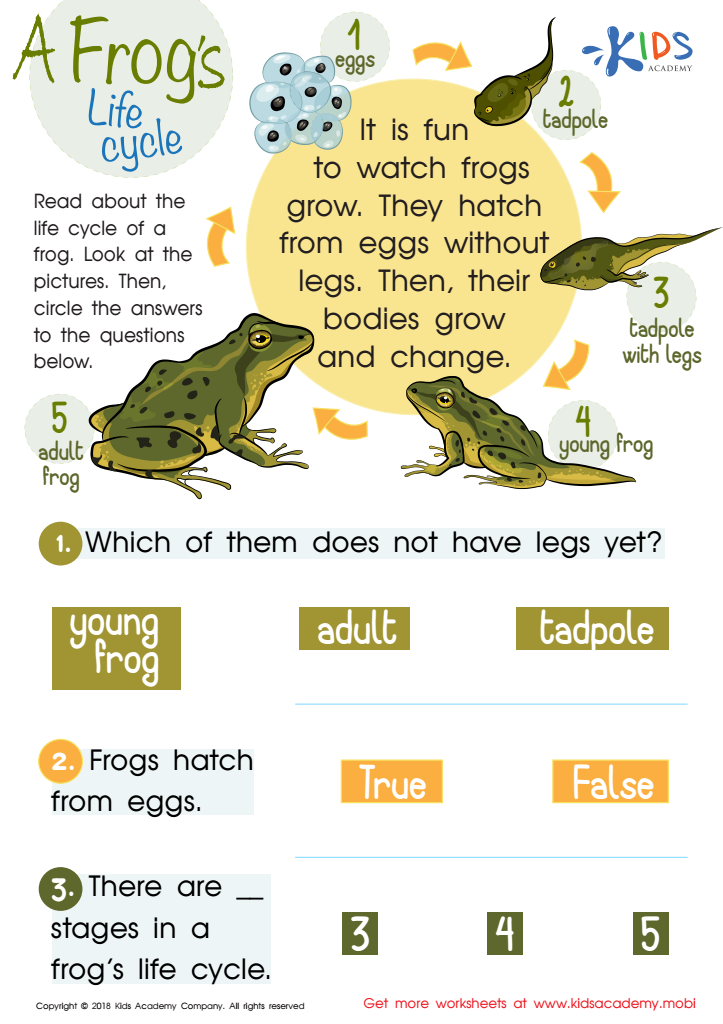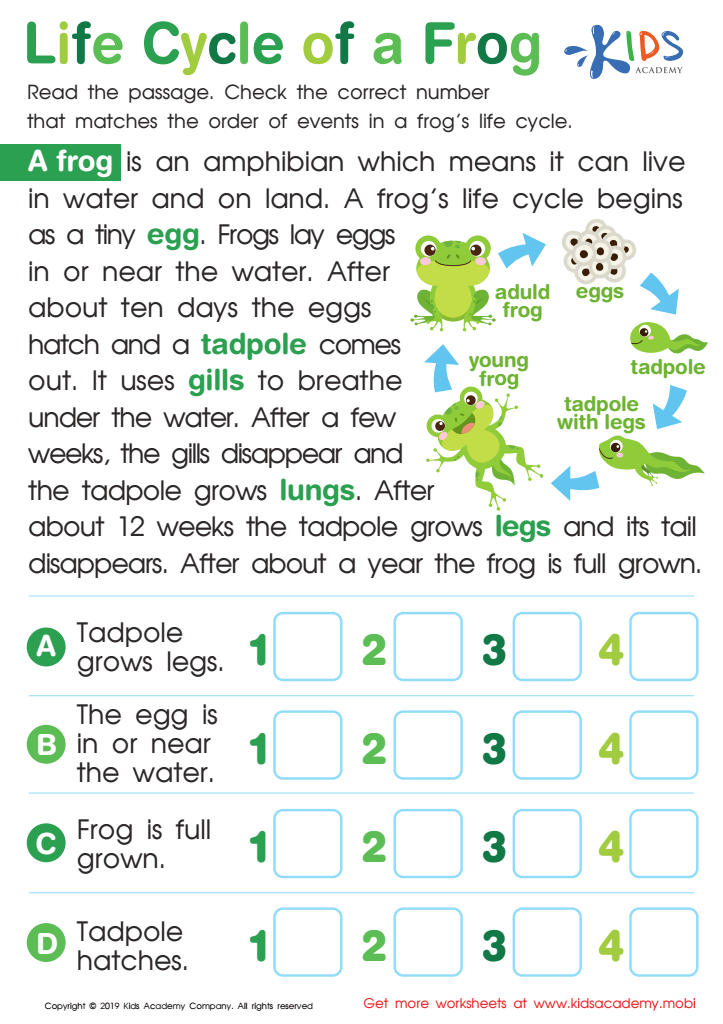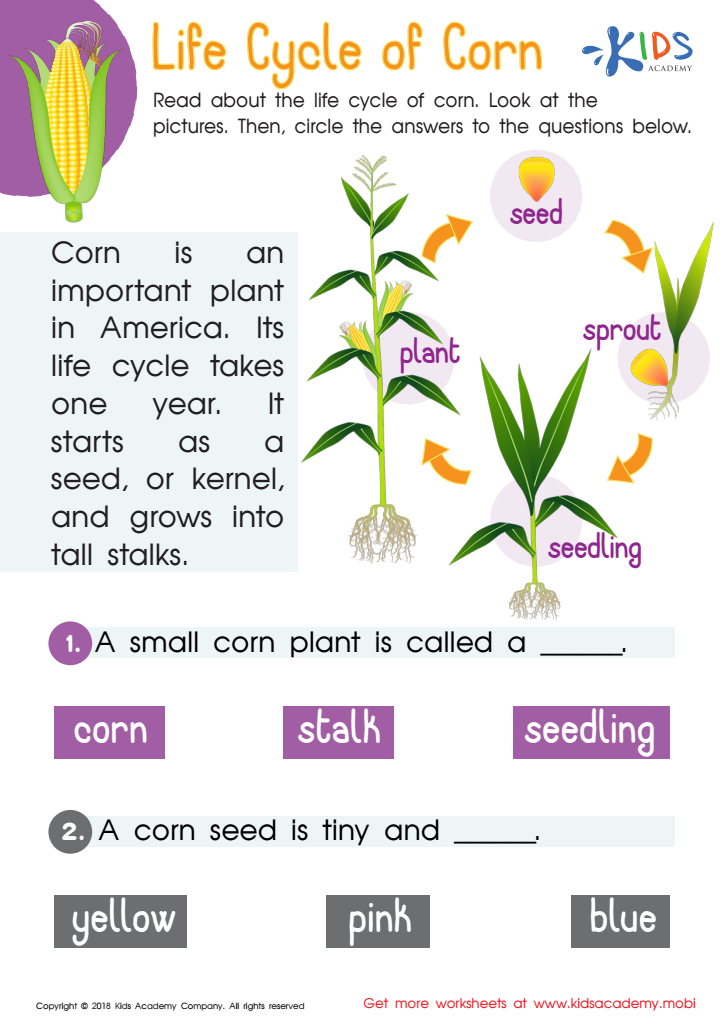Understanding life cycles Easy Reading Non-Fiction Worksheets for Ages 7-8
3 filtered results
-
From - To
Explore the fascinating world of life cycles with our "Understanding Life Cycles Easy Reading Non-Fiction Worksheets for Ages 7-8." Tailored for young learners, these engaging worksheets make complex biological concepts accessible and enjoyable. Through simplified reading passages and interactive activities, children will learn about different stages in the life cycles of plants and animals. Perfect for improving reading comprehension skills while sparking curiosity about nature, our worksheets provide a solid foundation in understanding how living organisms grow and change. Enhance your child's learning journey today with these educational, fun-filled resources!


A Frog’s Life Cycle Worksheet


Life Cycle of a Frog Worksheet


Life Cycle of Corn Worksheet
Understanding life cycles is a key educational foundation for children aged 7-8, fostering curiosity and respect for the natural world. Parents and teachers should care about this because it's not just about biology; it's about nurturing a child's sense of wonder and responsibility toward living things. Life cycles teach fundamental scientific concepts in an accessible, engaging way. Through easy reading non-fiction, children can learn about the phases of life for different plants and animals in a simple, relatable manner.
Comprehending these cycles helps kids appreciate the interconnectedness of ecosystems and the critical roles various organisms play. This insight can foster environmental stewardship from a young age, which is vital for our planet's future. It introduces basic principles of growth, change, and adaptation, encouraging observational skills and questioning—a backbone of scientific inquiry.
Moreover, delving into life cycles aids in developing literacy skills. Easy reading non-fiction is crafted to pique interest and bolster reading comprehension through factual, well-structured texts. For educators and parents, guiding children through these books also offers opportunities for meaningful discussions and hands-on activities, such as observing insects or planting seeds, enabling experiential learning that solidifies theoretical knowledge. In essence, understanding life cycles nurtures a child's academic growth while cultivating a lifelong affinity for the natural world.
 Assign to My Students
Assign to My Students














